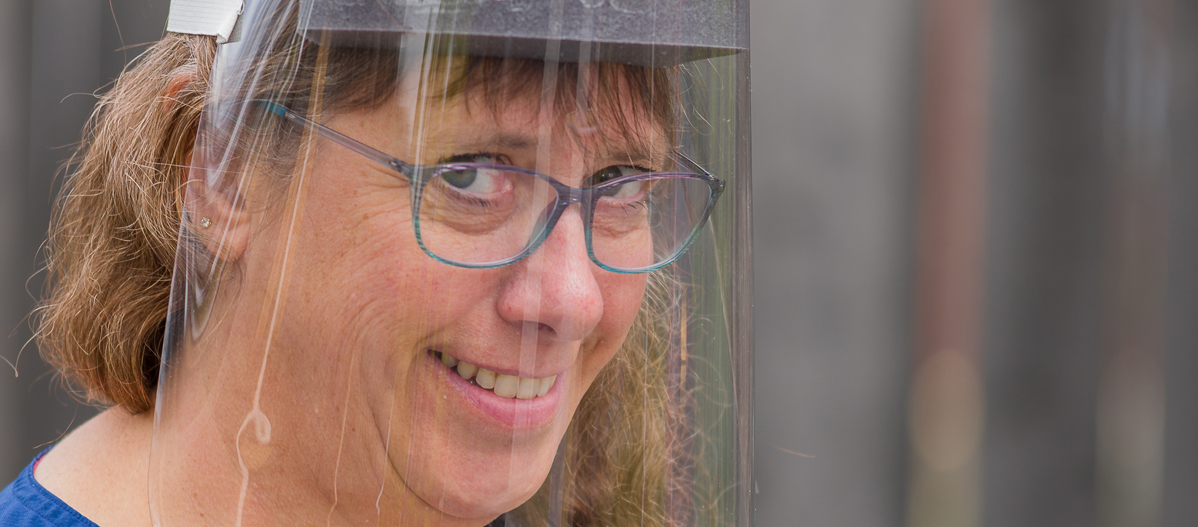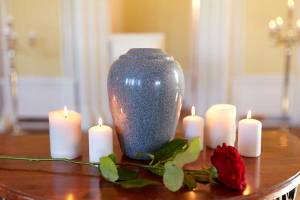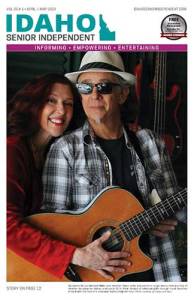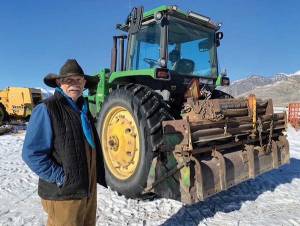Huge firms, like the automakers, have stepped up to meet critical needs during the Coronavirus pandemic by retooling and hiring to provide ventilators and personal protective equipment (PPE), but they aren’t the only ones. A small Missoula, Mont. manufacturing firm, Coaster Cycles, retooled in late March to make disposable, transparent face shields for healthcare workers.
This adaptability in product production is providing protection, and possibly survival, for those who are caring for patients with the virus while also reinforcing the economic survival of a Montana business and the people who work there.
When the pandemic brought orders for the products manufactured by Coaster Cycles to a standstill in March, the company began to lay off its workforce for the first time in 15 years.
About a week later, a design company published a drawing of an open-source, clear-plastic face shield for hospital workers.
Face shields are crucial, because they provide a second layer of protection and can be disinfected. Large hospitals used as many as 1500 disposable shields each day before the pandemic hit this country.
Today demand has increased, and supply is critical, because one COVID-19 patient may require healthcare workers use as many as 30 sets of PPEs each day.
Coaster Cycles grabbed the opportunity to make these shields, because its workers were already comfortable working with foam and plastic materials. Within two weeks, the company brought back the workforce, retooled the plant, and settled on a supply chain to buy and receive materials.
They are now making 50,000 face shields a day and shipping them out to a variety of customers, one being the New York City Department of Health.
This is quite a shift from the focus of their original business. Prior to the pandemic, Coaster Cycles made pedicabs and cargo cycles.
Ben Morris, CEO and owner of Coaster Cycles, first had the idea to create a business using pedicabs in 2005 when he was in San Diego and saw them used to tour people through the Gas Lamp Quarter. Pedicabs are human-powered taxis—three-wheeled cycles with a seat and canopy between the back two wheels for passengers and a seat toward the front for the cyclist.
Morris decided pedicabs would be convenient for transporting people to and from venues, like from large parking lots to athletic stadiums, or in congested areas where special interest-sites, such as museums, have limited parking.
Morris purchased five pedicabs, hired drivers, and found events along the eastern seaboard where pedicabs would fill a need. As each season passed, the pedicab business expanded.
“When I discovered that the pedicabs I was buying were not the caliber that I needed. I decided to form a company and start building pedicabs with sturdier features,” said Morris. The same company in Madison, Wis., that put out the face shield design, created the original pedicab style for Morris.
After he designed the cycles, Morris found a business in Darby, Mont., that was making recumbent bikes and was willing to help build the prototype. For a year they tried to make the two products simultaneously, but the floor space was simply not large enough, and the Darby location provided some logistical challenges.
One of the first drivers Morris hired was still with him at the time. Justin Bruce moved to Montana, became the COO, and started looking around for another place to build pedicabs.
In 2015, after using a less-than-satisfactory location near the Missoula airport, Bruce met Mike Boehme and Steve Nelson, who were the new owners of the former Stimson Lumber Mill site.
Morris arrived from the Bay area, and the two Coaster Cycles men met with Boehme and Nelson. They struck a deal to lease 7,600 square feet of the 1880 vintage stone building and received financing from a local bank to expand their business.
As the company increased its fabrication, assembly, and shipping capabilities during the next four years, it grew into almost 25,000 square feet of the stone building’s space.
About the time the company began to build pedicabs, businesses like the United Parcel Service started telling Morris they wanted freighters to use in large cities for last-mile delivery.
Cargo cycles are easier to maneuver around a city than a truck, and customers salute these cycles because they are a zero-emission method of transportation.
Coffee, ice cream, and beer vendors, as well as marketing agencies, purchased cargo box-style cycles to sell their products along streets, on sidewalks, and in parking lots.
Customers have many different reasons for buying the cargo cycles. The University of Montana purchased one for dining services to transport catered food across campus.
The library in Hayden, Idaho, purchased two cargo bikes to do wellness and mindfulness activities with teens and tweens in open settings.
The Senior Connection in Hailey, Idaho, purchased a pedicab to give seniors recreational rides on nearby bike paths.
Some cities are now choosing to make streets motorized-vehicle free, which makes Coaster Cycles in even higher demand. As part of production, the company also details the cycle, especially the cargo box, to market the customer’s product.
Every customer has a different reason for buying one or a fleet. A delightful example was in 2017 when the Philadelphia Association for Public Art commissioned Cai-Guo-Qiang, a Chinese artist, to create the special effects for the Fireflies Festival, celebrating public art.
Cai-Guo-Qiang designed many-shaped, colored paper lanterns lit by LED lights. He purchased 27 pedicabs from Coaster Cycles and had them delivered to his warehouse where he retrofitted the pedicabs with the lanterns.
After dark on the evening of the festival, the pedicab drivers put on a moving performance to display the numerous lit lanterns that bobbed in the air above the pedicabs. Spectators also signed up to ride in the pedicabs after the parade.
When the economy reopens, Coaster Cycles will make pedicabs and cargo-carrying cycles again. In the meantime, the company demonstrates adaptability by making the face shields.
“I estimate that we will be making face shields for some months, because emergency stockpiles have to be restored. Also, it’s likely that a lesson has been learned not to depend completely on other countries for manufacturing,” said Morris.
“Whatever our product, our company is in Montana to stay. We can ship from here all over the world,” said Morris.“The people from the governor’s office, to the banks, and on to the neighbors we have at our business have been extremely supportive.” ISI
To find out more about Coaster Cycles check online: www.coastercycles.com.











